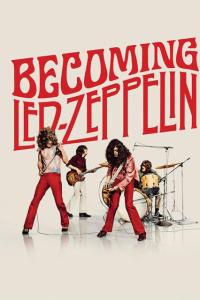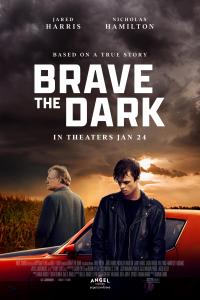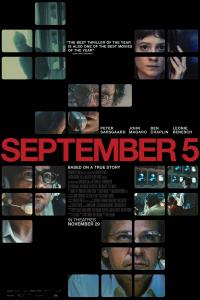Torrent details for "Bee Gees – Odessa 2 lp 1969 Vinyl rip" Log in to bookmark
Controls:
Language:
 English
EnglishTotal Size:
392.32 MB
Info Hash:
7dbd4006699adc49095e33a1d7cf17bdd83a44a3
Added By:
Added:
27-12-2024 19:27
Views:
283
Health:

Seeds:
5
Leechers:
3
Completed:
5,145
Bee Gees – Odessa
Polydor – 184199/200
2 x Vinile, LP, Album, Red Felt Gatefold Sleeve
Paese:
Italy pressing 1969
-------------------------------------
DIGITAL JOB FROM ORIGINAL FIRST PRESS VINYL
from my private collection
this one is a bit cranky..first song side a
LINEAGE -Technish sl 3310 with STANTON D500al mkii stylus- SONY TA 345XR amplifier
_cable-PC SOUNDBLASTER -CDWAVE- FLAC YOU
----------------------------------------------
01 Odessa (City On The Black Sea) 7:33
02 You'll Never See My Face Again 4:16
03 Black Diamond 3:27
04 Marley Purt Drive 4:26
05 Edison 3:07
06 Melody Fair 3:48
07 Suddenly 2:29
08 Whisper Whisper 3:24
09 Lamplight 4:47
10 Sound Of Love 3:27
11 Give Your Best 3:26
12 Seven Seas Symphony 4:09
13 With All Nations (International Anthem) 1:46
14 I Laugh In Your Face 4:09
15 Never Say Never Again 3:28
16 First Of May 2:48
17 The British Opera 3:17
riferendosi a Odessa (2×LP, Album, MG) SD 2-702
Over the decades since its release, ODESSA has generally come to be regarded as the Bee Gees' early peak, a lush, sweeping double LP originally released in early 1969. It's certainly eclectic and ambitious, side two illustrates the diverse scope of the album. "Marley Purt Drive" has a countryish flavor to it, "Edison" is bathed in a light psychedelic glaze, "Melody Fair" is absolutely gorgeous, a baroque pop masterpiece. "Suddenly" almost has a jazzy vibe, with prominent use of an oboe, and "Whisper Whisper" approaches rock & roll, with a bold, brassy arrangement. This 1969 pressing offers solid range from top to bottom, and a wide, multi-layered soundstage. My copy plays nice and clean, with occasional faint surface noise.
Odessa (2×LP, Album, CT - Terre Haute Pressing, Velvet sleeve) SD 2-702
Underated Bee Gees effort Some great performances on this by All Gibb Brothers! Hands down best work from the Sixties! Only Double album with Concept ideas strung throughout the releases. Recording is on the softer side but very nice and revealing. This along with the American Monarch pressing are some of the best outside of UK pressings.
The British pop group Bee Gees was active from 1965 to 2001.
During that time they released 22 studio albums.
Odessa is the sixth studio album (fourth worldwide), released first in the US by ATCO in January 1969 (stereo only) and later in the UK by Polydor in March 1969 (both mono & stereo).
The cover of the original issue is fuzzy red flocking with the title, group name, and label symbol stamped in gold on the front and nothing but the flocking on the back. The gatefold has a large dotted image of people leaving a ship in a lifeboat. There are no photographs of the group and they are not named except as to all songs being written by B R & M Gibb.
The mono version is not as different as the mono version of the previous albums. The song "Odessa" in mono has less echo on the intro vocals (‘baa baa black sheep'), and the guitars are louder, especially in verse 1. On "Edison" the harmony backing vocal is easier to hear. "Lamplight" has the vocal and rhythm guitar louder to clarify the sound. The mono mix for "I Laugh In Your Face" plays a little faster. "First of May" does not fade at the end.
Recording sessions
12 July 1968, IBC Studios (London)
"I Laugh In Your Face"
13-14 August 1968, Atlantic Recording Studios (New York City)
"Whisper Whisper” (As completed is a composite of three sections recorded at the start of the sessions. The "Odessa" album has an edit of the three sections with vocals and orchestra recorded in England).
15 August 1968, Atlantic Recording Studios (New York City)
"Marley Purt Drive" (A different vocal (with the same lyrics) and a bit of orchestration at the end were recorded in England to form the finished version heard on "Odessa").
20 August 1968, Atlantic Recording Studios (New York City)
"Give Your Best" (Only new vocals were added in England).
"Sound Of Love" (It was finished in England with the addition of a new vocal and orchestration).
21 August 1968, Atlantic Recording Studios (New York City)
"Edison" (The last song the Bee Gees did at Atlantic was "Barbara Came to Stay", a song that would change quite a bit back in England. The basic New York instrumental track remained, but Barry Gibb’s rhythm guitar was mixed out, and an organ was added. Most significantly the lyrics were completely rewritten, resulting in a change of title to "Edison").
3 October 1968, Trident & IBC Studios (London)
"Black Diamond"
17 October 1968, Trident & IBC Studios (London)
"You’ll Never See My Face Again" & "Suddenly" (Further additions in December created the finished versions).
26-27 October 1968, Trident & IBC Studios (London)
"Melody Fair" (A mix of the state on October 27, showed the Mellotron was mixed out later).
24 November 1968, IBC Studios (London)
"First Of May"
Most likely between November 24 and December 7, 1968, IBC Studios (London)
"Odessa (City On The Black Sea)" (A major work that took a few sessions. At heart it is two long verses and choruses, but those are surrounded by other vocal and instrumental sections. The instrumental track is led by the unusual combination of a flamenco guitar by Maurice Gibb and a cello by Paul Buckmaster. The song was called "Odessa on the White Sea" in an early version, and Barry Gibb identifies the ship in a spoken intro as a Dutch ship called 'Onstrauss' and the date as February 14, 1866).
"Lamplight" & "Never Say Never Again"
Undated 1968, IBC Studios (London)
"Seven Seas Symphony" (Performed by Maurice Gibb and the orchestra playing together live).
"With All Nations (International Anthem)" & "The British Opera" (Feature solely Bill Shepherd’s orchestra and chorus with no singing or playing by the Bee Gees).
ma er goal de turone erraa bbbuuono!


online photo storage unlimited
Polydor – 184199/200
2 x Vinile, LP, Album, Red Felt Gatefold Sleeve
Paese:
Italy pressing 1969
-------------------------------------
DIGITAL JOB FROM ORIGINAL FIRST PRESS VINYL
from my private collection
this one is a bit cranky..first song side a
LINEAGE -Technish sl 3310 with STANTON D500al mkii stylus- SONY TA 345XR amplifier
_cable-PC SOUNDBLASTER -CDWAVE- FLAC YOU
----------------------------------------------
01 Odessa (City On The Black Sea) 7:33
02 You'll Never See My Face Again 4:16
03 Black Diamond 3:27
04 Marley Purt Drive 4:26
05 Edison 3:07
06 Melody Fair 3:48
07 Suddenly 2:29
08 Whisper Whisper 3:24
09 Lamplight 4:47
10 Sound Of Love 3:27
11 Give Your Best 3:26
12 Seven Seas Symphony 4:09
13 With All Nations (International Anthem) 1:46
14 I Laugh In Your Face 4:09
15 Never Say Never Again 3:28
16 First Of May 2:48
17 The British Opera 3:17
riferendosi a Odessa (2×LP, Album, MG) SD 2-702
Over the decades since its release, ODESSA has generally come to be regarded as the Bee Gees' early peak, a lush, sweeping double LP originally released in early 1969. It's certainly eclectic and ambitious, side two illustrates the diverse scope of the album. "Marley Purt Drive" has a countryish flavor to it, "Edison" is bathed in a light psychedelic glaze, "Melody Fair" is absolutely gorgeous, a baroque pop masterpiece. "Suddenly" almost has a jazzy vibe, with prominent use of an oboe, and "Whisper Whisper" approaches rock & roll, with a bold, brassy arrangement. This 1969 pressing offers solid range from top to bottom, and a wide, multi-layered soundstage. My copy plays nice and clean, with occasional faint surface noise.
Odessa (2×LP, Album, CT - Terre Haute Pressing, Velvet sleeve) SD 2-702
Underated Bee Gees effort Some great performances on this by All Gibb Brothers! Hands down best work from the Sixties! Only Double album with Concept ideas strung throughout the releases. Recording is on the softer side but very nice and revealing. This along with the American Monarch pressing are some of the best outside of UK pressings.
The British pop group Bee Gees was active from 1965 to 2001.
During that time they released 22 studio albums.
Odessa is the sixth studio album (fourth worldwide), released first in the US by ATCO in January 1969 (stereo only) and later in the UK by Polydor in March 1969 (both mono & stereo).
The cover of the original issue is fuzzy red flocking with the title, group name, and label symbol stamped in gold on the front and nothing but the flocking on the back. The gatefold has a large dotted image of people leaving a ship in a lifeboat. There are no photographs of the group and they are not named except as to all songs being written by B R & M Gibb.
The mono version is not as different as the mono version of the previous albums. The song "Odessa" in mono has less echo on the intro vocals (‘baa baa black sheep'), and the guitars are louder, especially in verse 1. On "Edison" the harmony backing vocal is easier to hear. "Lamplight" has the vocal and rhythm guitar louder to clarify the sound. The mono mix for "I Laugh In Your Face" plays a little faster. "First of May" does not fade at the end.
Recording sessions
12 July 1968, IBC Studios (London)
"I Laugh In Your Face"
13-14 August 1968, Atlantic Recording Studios (New York City)
"Whisper Whisper” (As completed is a composite of three sections recorded at the start of the sessions. The "Odessa" album has an edit of the three sections with vocals and orchestra recorded in England).
15 August 1968, Atlantic Recording Studios (New York City)
"Marley Purt Drive" (A different vocal (with the same lyrics) and a bit of orchestration at the end were recorded in England to form the finished version heard on "Odessa").
20 August 1968, Atlantic Recording Studios (New York City)
"Give Your Best" (Only new vocals were added in England).
"Sound Of Love" (It was finished in England with the addition of a new vocal and orchestration).
21 August 1968, Atlantic Recording Studios (New York City)
"Edison" (The last song the Bee Gees did at Atlantic was "Barbara Came to Stay", a song that would change quite a bit back in England. The basic New York instrumental track remained, but Barry Gibb’s rhythm guitar was mixed out, and an organ was added. Most significantly the lyrics were completely rewritten, resulting in a change of title to "Edison").
3 October 1968, Trident & IBC Studios (London)
"Black Diamond"
17 October 1968, Trident & IBC Studios (London)
"You’ll Never See My Face Again" & "Suddenly" (Further additions in December created the finished versions).
26-27 October 1968, Trident & IBC Studios (London)
"Melody Fair" (A mix of the state on October 27, showed the Mellotron was mixed out later).
24 November 1968, IBC Studios (London)
"First Of May"
Most likely between November 24 and December 7, 1968, IBC Studios (London)
"Odessa (City On The Black Sea)" (A major work that took a few sessions. At heart it is two long verses and choruses, but those are surrounded by other vocal and instrumental sections. The instrumental track is led by the unusual combination of a flamenco guitar by Maurice Gibb and a cello by Paul Buckmaster. The song was called "Odessa on the White Sea" in an early version, and Barry Gibb identifies the ship in a spoken intro as a Dutch ship called 'Onstrauss' and the date as February 14, 1866).
"Lamplight" & "Never Say Never Again"
Undated 1968, IBC Studios (London)
"Seven Seas Symphony" (Performed by Maurice Gibb and the orchestra playing together live).
"With All Nations (International Anthem)" & "The British Opera" (Feature solely Bill Shepherd’s orchestra and chorus with no singing or playing by the Bee Gees).
ma er goal de turone erraa bbbuuono!


online photo storage unlimited










































